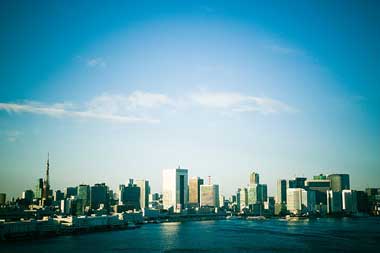When to Travel
Travelling to a different country or a different continent can be a stressful experience when all aspects are considered. One of the problems that people encounter is the change in temperature from their home country. If it is a drastic dip or increase the body can react quite badly, so it is important to know what to expect when visiting and to know when is the best time to travel. Tokyo's temperatures and climates change throughout the year, with all four season's seeing changes.
Winter in Tokyo is not as cold as is often imagined, with temperatures during the day averaging 9°C, but evening temperatures can drop down to freezing. At times there will be snowfall and the wind is often bitter so it is advisable to take a warm coat and protective clothing. However, as is often the case in cold weather, the temperature inside restaurants, the underground and other locations is often very warm, so wear something that can easily be removed. Don't be surprised if you see anyone wearing surgical masks, as the cold often brings on illness and people wish to protect themselves against it.
Spring is a popular time to visit Tokyo due to the temperate weather and beautiful cherry blossoms. In early spring it can be quite cold, but it soon warms up and on average it is about 10°C. Summer in Tokyo varies and while in June it tends to rain quite a lot, in August it is often very humid and uncomfortable. Understandably this is not a favoured time for sightseeing and the temperatures can reach between 30°C and 40°C.
Autumn, like spring, is a preferred time to visit Japan as the temperatures drop and it is much more comfortable to walk around and see the sights. The autumn colours are popular to see and provide a beautiful backdrop for the holiday. Japan is popular because of its varied seasons, offering a different vision of its cities during different times of the year. Knowing what to expect in terms of temperature and winds will allow travellers to pack accordingly and relax once they arrive.

